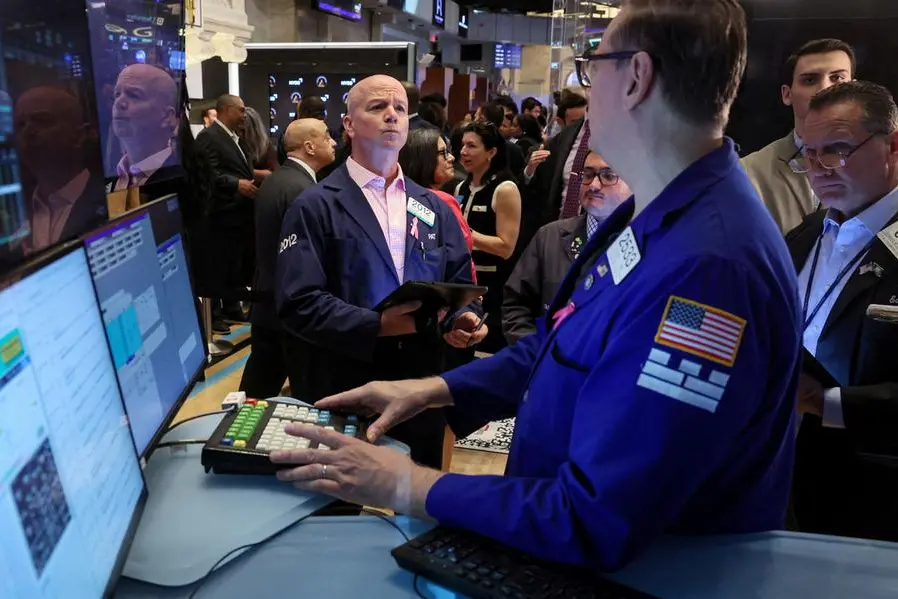PHOTO
PARIS - European shares rose in early trade on Wednesday after data pointing to softer inflation helped markets recover from last week's meltdown, while traders hoped that U.S. inflation data later in the session would also be benign.
New Zealand's central bank cut interest rates for the first time in four years, and signalled more monetary policy easing to come. The move sparked a sell-off in the Kiwi dollar, which was down around 1% on the day.
The Japanese yen and the Nikkei wobbled after Japan's Prime Minister Fumio Kishida said he will step down next month, but Asian shares still rose overall as markets recovered from the recent rout.
At 0856 GMT, the MSCI World Equity index was up 0.3% on the day, at its highest in 12 days.
Europe's STOXX 600 was up 0.4% on the day, while London's FTSE 100 was up 0.5% after data showed British inflation rose less than expected in July.
UBS shares were up around 2.9% after it reported $1.1 billion of net profit in the April to June period, beating analyst's forecasts.
Last week's global market sell-off was widely attributed to fears of a U.S. recession, which left traders betting that the U.S. Federal Reserve would need to cut interest rates quickly to spur growth. Stocks and bond markets were also affected by traders quitting the yen carry trade, in response to the yen getting stronger following a surprise Bank of Japan rate hike.
U.S. data since then has eased recession fears. Stocks jumped on Tuesday after U.S. producer price data pointed to inflation cooling, which supported speculation that the Federal Reserve could cut interest rates soon.
U.S. CPI data is due at 1230 GMT (8:30 a.m. ET) and traders hope it supports the idea of Fed rate cuts. Markets are pricing in a roughly 52.5% chance of a 50 basis point rate cut, and a 47.5% chance of a 25 basis point cut, at the Fed's next meeting in September.
"Markets are less in panic mode," said Justin Onuekwusi, chief investment officer at investment firm St. James's Place.
Still, he said, traders may be getting ahead of themselves in their rate cut expectations.
"The market is being far too aggressive in those Fed cuts, particularly when you have hawkish leaning Fed officials saying they are looking for more data to support cuts."
Atlanta Federal Reserve President Raphael Bostic on Tuesday said he wants to see "a little more data" before he's ready to support lowering interest rates.
The 10-year U.S. Treasury yield was steady at 3.8522%, with yields having fallen after Tuesday's U.S. producer price data .
European government bond yields were a touch higher on the day, but little changed ahead of the U.S. consumer price data later in the session. The German 10-year yield was up by 2 basis points at 2.199%.
The dollar index was little changed at 102.49, while the euro was up 0.2% on the day and hit as high as $1.102, its strongest since January 2
In commodities, oil prices rose as estimates showed shrinking U.S. crude and gasoline inventories. The market is watching for any escalation of the Israel-Gaza war, which could impact global oil supplies.
Brent crude futures rose 0.8% to $81.30 a barrel, while U.S. West Texas Intermediate crude also gained 0.8% to $78.98.
Gold prices were 0.4% higher at $2,474.19 an ounce.
(Reporting by Elizabeth Howcroft; editing by David Evans)




















